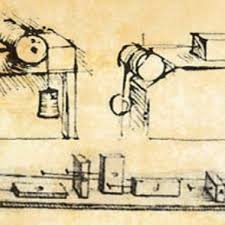I read an article, “In Search Of The Frictionless Organization.” While some of the basic ideas about creating great customer experience by “eliminating friction,” are very good, I think the concept of eliminating friction demonstrates a huge misunderstanding of friction and how important it is.
First, what is friction? In science, friction is “the force resisting the relative motion of solid surfaces, fluid layers, and material elements sliding against each other.”
In the physical world, without friction, most movement would be impossible. Without friction, things would move in the same direction forever–change would be impossible without some other force creating friction and shifting velocity and direction.
Depending on what we are trying to achieve, we may find it valuable to reduce friction–for example to speed something up, or increase friction–to slow something down or change direction.
The same concept is important as we look at the friction of what we do. Friction is very important, rather than eliminating friction, we want to manage/optimize it.
Friction in customer support, as the article points out, could create difficulty for our customers. But understanding this friction is really important to us, it helps us learn more about our customers, their difficulties, challenges, how we could better serve them. Friction is helpful for the customer, it helps them better understand, learn, and change. Without friction, we would would continue on the same path, never changing–though it may be critical for us to change.
Likewise, we experience friction within our organizations. Differences in ideas, priorities, strategies, goals. This friction is important because it helps us identify opportunities to change, learn, grow and improve.
Rather than eliminating friction, we really want to understand it, we may find ways to reduce it–which, like in physical objects, could help us move faster. We may find it drives us to change, to do something differently.
So eliminating friction, or even the making things effortless (apologies to my friends Nick Toman and Matt Dixon) cause us to lose contact with our customers, and ourselves. Rather than eliminating friction, we want to understand it, using to learn, improve, change.

Leave a Reply